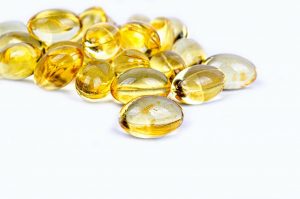 Most people make resolutions to change for the better during new year celebrations. Most swear to stop drinking, lose weight, or even quit smoking for good. While all these are positive resolutions, very few people take their mental and physical health into consideration. Very few will resolve to do something about their psychological and physical health by increasing their intake of essential/vital vitamins.
Most people make resolutions to change for the better during new year celebrations. Most swear to stop drinking, lose weight, or even quit smoking for good. While all these are positive resolutions, very few people take their mental and physical health into consideration. Very few will resolve to do something about their psychological and physical health by increasing their intake of essential/vital vitamins.
Care agency, Gabriel’s Angels know that vitamins D and B are some of the essential vitamins that are required for good health as one grows older. These vitamins (B and D) play a vital role in the brain, immune system, and blood health. The two vitamins are also required to ensure the body can use energy efficiently for optimal performance even at old age. One way to increase your vitamin D and vitamin B intake is by basking in the morning sun and focusing on a diet plan (foods) high in these vitamins. Inadequate amounts of these vitamins in the body increases the risk of age-related diseases and osteoporosis in older adults.
Vitamin D plays a vital role in boosting your immunity, protecting you from colds, fighting depression, and most importantly, promoting good bone health. The risk of developing dementia is greatly increased if you have vitamin D deficiency. Studies, however, show that more than 50% of older adults in the UK alone have vitamin D deficiencies. Unknown to many, the human body depletes more nutrients than it retains as we get older. This is one of the reasons why health experts recommend consuming foods high in these vitamins as much as we can. It would also be advisable to go for fortified foods and supplements from supermarkets, health stores, and pharmacies.
Sources of Vitamin D
Sunshine is the most abundant source of vitamin D. Simply basking in the morning or evening sun enables the skin to synthesize enough vitamin D for the day. The rate at which the skin converts UV B rays into vitamin D in younger persons isn’t, however, the same with older adults. Seniors have relatively thinner skin – this makes it a lot harder for it to produce enough vitamin D. This could be the reason why older people have the highest risk of a vitamin D deficiency. There’s also not enough sunshine during winter. For this reason, seniors should turn to other sources of vitamin D. Some of the best alternative sources of vitamin D include fortified juice, egg yolks, supplements, fortified cereals, canned tuna, fatty fish, and cod liver oil. An ultraviolet lamp may also come in handy in supplementing your vitamin D intake. Consider going to a tanning salon if possible, for a dose of the same.
Sources of B Vitamins
B vitamins are essential for overall good health. There are, however, different categories of B vitamins all serving a different function. All these, however, help the body release enough energy from the foods we eat. Vitamin B12, also known as cobalamin, is one of the essential vitamins required for the proper functioning of the nervous system, brain, and the manufacture of blood. Vitamin B12 deficiencies often cause symptoms similar to dementia. Although you can get plenty of vitamin B12 from the foods you eat, you could supplement these with supplements (injections) of the same. This is particularly important for those that cannot synthesise the vitamin. Vitamin B12 is also related to good health and improved memory for individuals with dementia. Vegetarians and older adults are at the highest risk of vitamin B12 deficiency. This specific vitamin is only found in animal proteins such as beef liver, fish, and shellfish.
Thiamin, also known as vitamin B1, is essentially required for healthy muscles and nerves. The most common sources of thiamine include wholegrain bread, liver, eggs, vegetables, peas, and fruits.
Vitamin B2, commonly known as riboflavin, is needed for a healthy nervous system, eyes, and the skin. This is commonly found in rice and dairy products. Pantothenic acid is required to facilitate the release of foods from foods. It is commonly found in vegetable and meat sources.
Vitamin B6 or pyridoxine enables the body to store, as well as use energy. It is also required for the manufacture of haemoglobin. Sources of vitamin B6 include milk, peanuts, potatoes, eggs, fish, bread, and pork.
Folic acid is another essential vitamin needed in the formation of red blood cells. It also plays a vital role in preventing central nervous system defects. The most common sources of folic acid include chickpeas. Spinach, brussels sprouts, liver, and brown rice.